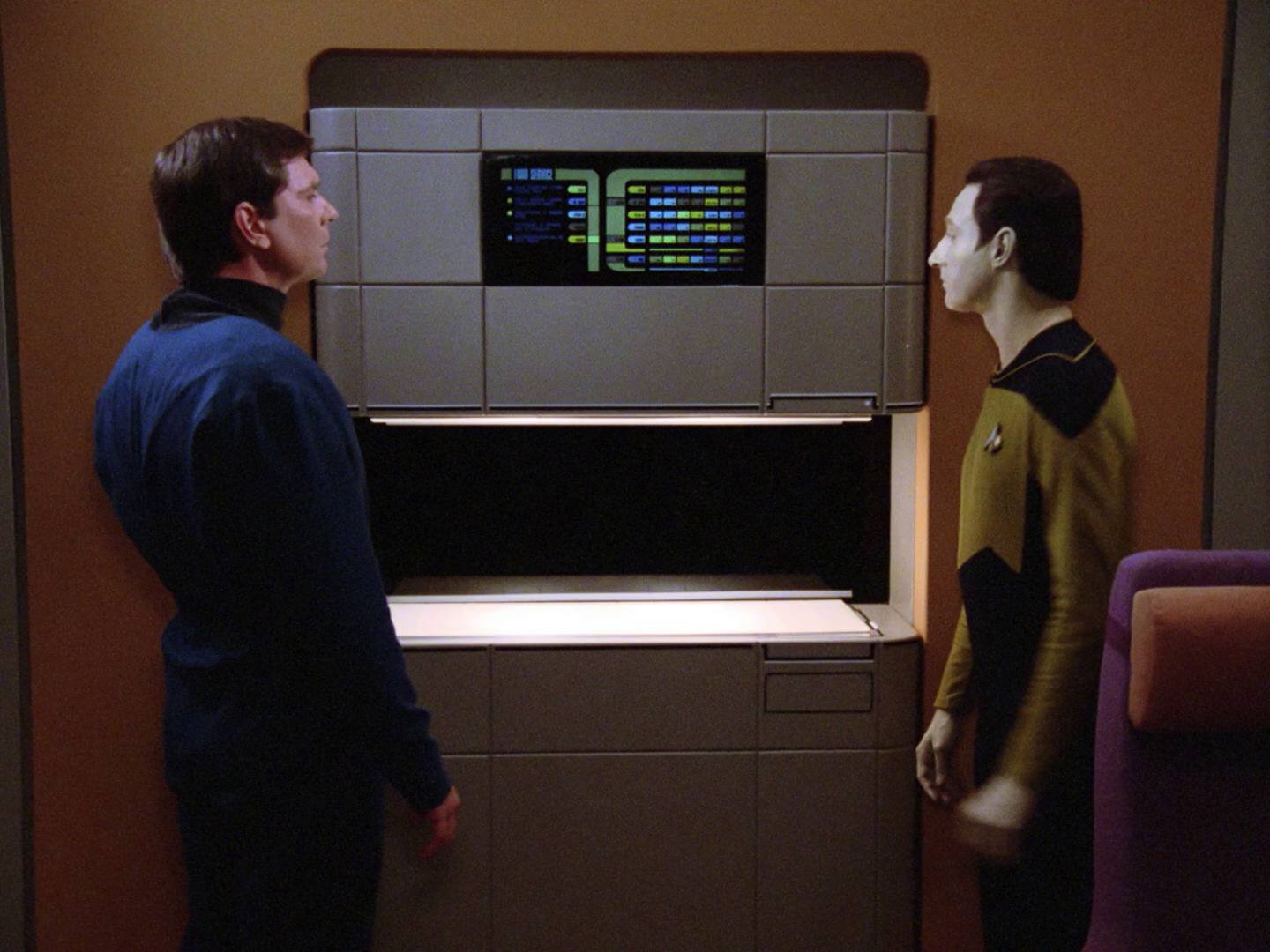Even a non-Trekkie, non-TV-watching person like myself has fully absorbed the program’s ideas, so fully have they immersed themselves in the culture. Beyond the sheer entertainment of the Enterprise lies, of course, a colorblind society that during the days of Gene Roddenberry could only seem realistic in space. Imperfect though we still are, we’ve moved closer to realizing this world ever since the original Star Trek iteration debuted in 1966.
Another less talked about aspect of the sci-fi show is that it exists in a post-scarcity world. There are still challenges and obstacles, but basic needs are universally met. Manu Saadia, author of the soon-to-be-published Trekonomics, argues in a Money article that for all the very real concerns about wealth inequality, we may be closer than we think to achieving such a system.
An excerpt:
In Star Trek’s hypothetical society — the Federation — poverty, greed and want no longer exist. Most goods are made for free by robots known as replicators. The obligation to work has been abolished. Work has become an exploration of one’s abilities. The people of Star Trek have solved what British economist John Maynard Keynes pithily called “the economic problem,” that is, the necessity for individuals and societies to allocate scarce goods and resources. They live secure in the knowledge that all needs will be fulfilled and free from the tyranny of base economic pursuits.
The replicator is the keystone of Star Trek’s cornucopia. It’s a Santa Claus machine that can produce anything upon request: foods, beverages, knick-knacks, and tools. Like Captain Picard of Star Trek: The Next Generation, you merely have to ask for “tea, Earl Grey, hot,” and the machine will make your beverage appear out of thin air with a satisfying, tingling visual effect.
The replicator is the perfect, and therefore last, machine. You cannot improve upon it. You ask and it makes. This signals that Star Trek speaks to us from the other side of the industrial revolution. The historical process by which machines enhance and replace human labor has reached its conclusion. …
The replicator is a public good, available to all for free. In the show’s universe, the decision was made to distribute the fruits of progress among all members of society. Abundance is a political choice as much as the end result of technological innovation. And to underscore that point, Star Trek goes so far as to feature alien societies where replicators’ services aren’t free.
To a 21st century audience, beset by growing inequality and a sense of dread in the face of coming automation, such a world seems entirely out of reach. We will probably never go where no one has gone before, nor will we ever meet alien Vulcans.
But some of Star Trek’s blissful vision of society has already come to pass.•
Tags: Manu Saadia

